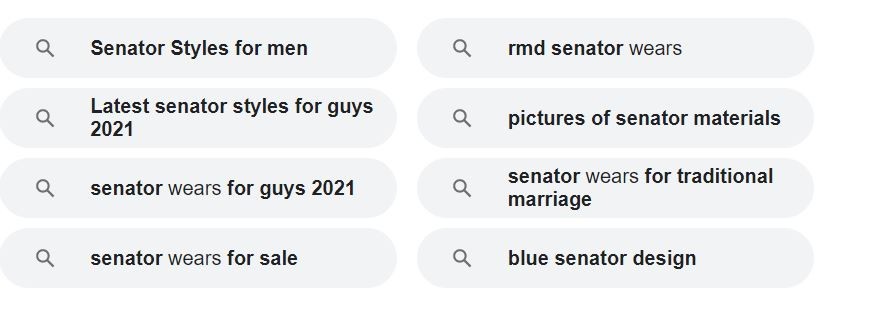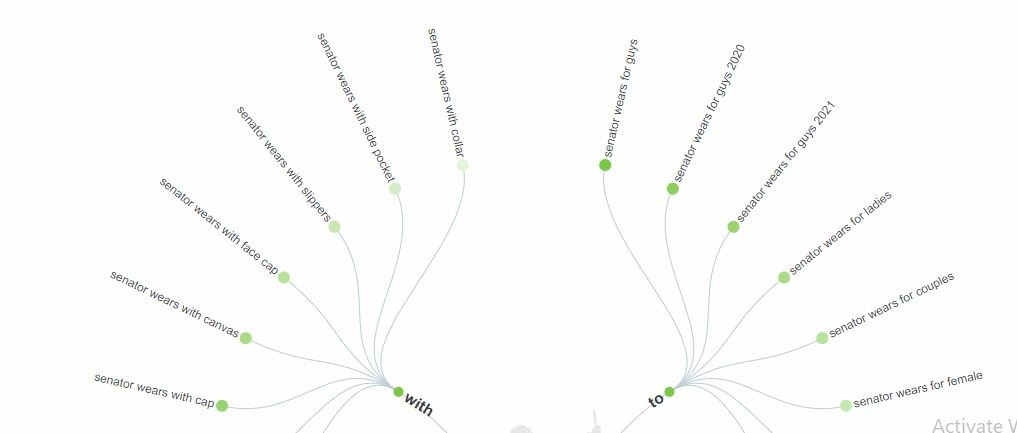With the rapid growth in online competition, knowing your target audience can give your business a head and shoulder above your competitors. There are billions of active internet users but, everyone cannot be your customer. One of the anatomies of a great entrepreneur is to know who his target audience is.
Picture this: You deal in senator materials and want to advertise on Google, Facebook and LinkedIn. In the audience targeting, you selected age, gender, and location and publish the ads. These are just rudimentary data and aren’t enough to win your competitors. You need to understand your customers’ fears, hope, wishes, dreams, and motivation. When you know them intimately, you will be able to enter the conversation already taking place in their minds. So, just because you sell clothing material doesn’t mean everyone is your customer. Not everyone values senator wears, not everyone can afford them, and not everyone loves to wear them.
Therefore, when it comes to getting new clients, having a keen understanding of your target audience and tailoring your marketing message directly to them is key to your success.
Let’s look at some of the benefits of knowing your target audience.
Benefits of Understanding Your Target Audience
- Targeted and Relevant Messages: By knowing whom you are talking to, your marketing message is directly targeted to them.
- Less Advertising Budget: If don’t know your customers, you will end up wasting your money on advertising and your competitors will eat you alive. But when you know them, you spend less.
- Higher Trust in your Brand: By knowing your customers’ pain points, hopes, challenges, dreams, and motivation and tailoring your marketing effort to solve those challenges will make them trust your brand and position it as an authority in your industry/market.
How to Understanding Your Target Audience Painpoints & Desires
So, how can you discover your dream buyer’s pain points & desires?
Well, all you need to get started is just two or three keywords or phrases relevant to your business. Once, you have these relevant keywords available, you will use the following tools to have a better understanding of your target audience.
Google Autocomplete: It is a feature designed to make it faster to complete searches that you’re beginning to type.” Google does this using data collected from millions of other Google searches and their results. However, this tool has been a powerful marketing tool for marketers, content marketers, SEO specialists for getting a goldmine of insights. It provides us with content ideas and intent exploitation of our target audience. Entered these keywords one after the other to get what people are searching for through the suggested phrases. When I typed “senator We..” Google started giving me a series of suggestions as shown below.


AnwerThePublic: AnswerThePublic listens into autocomplete data from search engines like Google then quickly cranks out every useful phrase and question people are asking around your keyword. It’s a goldmine of consumer insight you can use to create fresh, ultra-useful content, products, and services.
I did the same thing using “Answer the public”

Social Media Sites: Make good use of social media sites and forums. There is a shortcut here: Find your top 3 competitors. Seriously. Just find them. And, let me tell you, regardless of how weird, esoteric, or seemingly “unknown” your niche is, there will at least be one competitor on social media. Find that organization or business and let them do your niche and target audience research for you. Since they’ve already started and they are already speaking to your audience, find out who your competitors are and look at their social media profiles.
Facebook and Twitter have search functions that you can use to filter search results. By seeing the questions and learning what your target audience is talking about, you will be able to come up with an effective marketing strategy that can best appeal to them.
Twitter Search Function: Using the search function, key in the keywords relevant to your business and include a question mark sign in your search. For example “blogging”, will generate a result of tweets with questions users posted about blogging. This will help you have a ‘pulse’ on the current interests/concerns.
Facebook: Try to come up with the top 3 competitor fan pages that have the most number of “likes” and take time to read interactions and reverse engineer what they’re doing right.
Using the social media sites research method, I published a post on Facebook and got this great result with lots of inquiries/bookings for a client.

Forums: Forums offer an incredible wealth of information. Find one that is relevant your to target market. Spend time reading what the members are talking about, what concerns and problems they need solving. Reddit & Quora are great examples.
At the end of your research, you should be able to know:
Where your target audience hangs out and gets information.
What their biggest fears & challenges are.
What their hopes, dreams, and desires are.
What jargon they use.
What motivates them.
The endgame is a deeper & intimate understanding of your target audience and the corresponding result is massive growth in your business.

